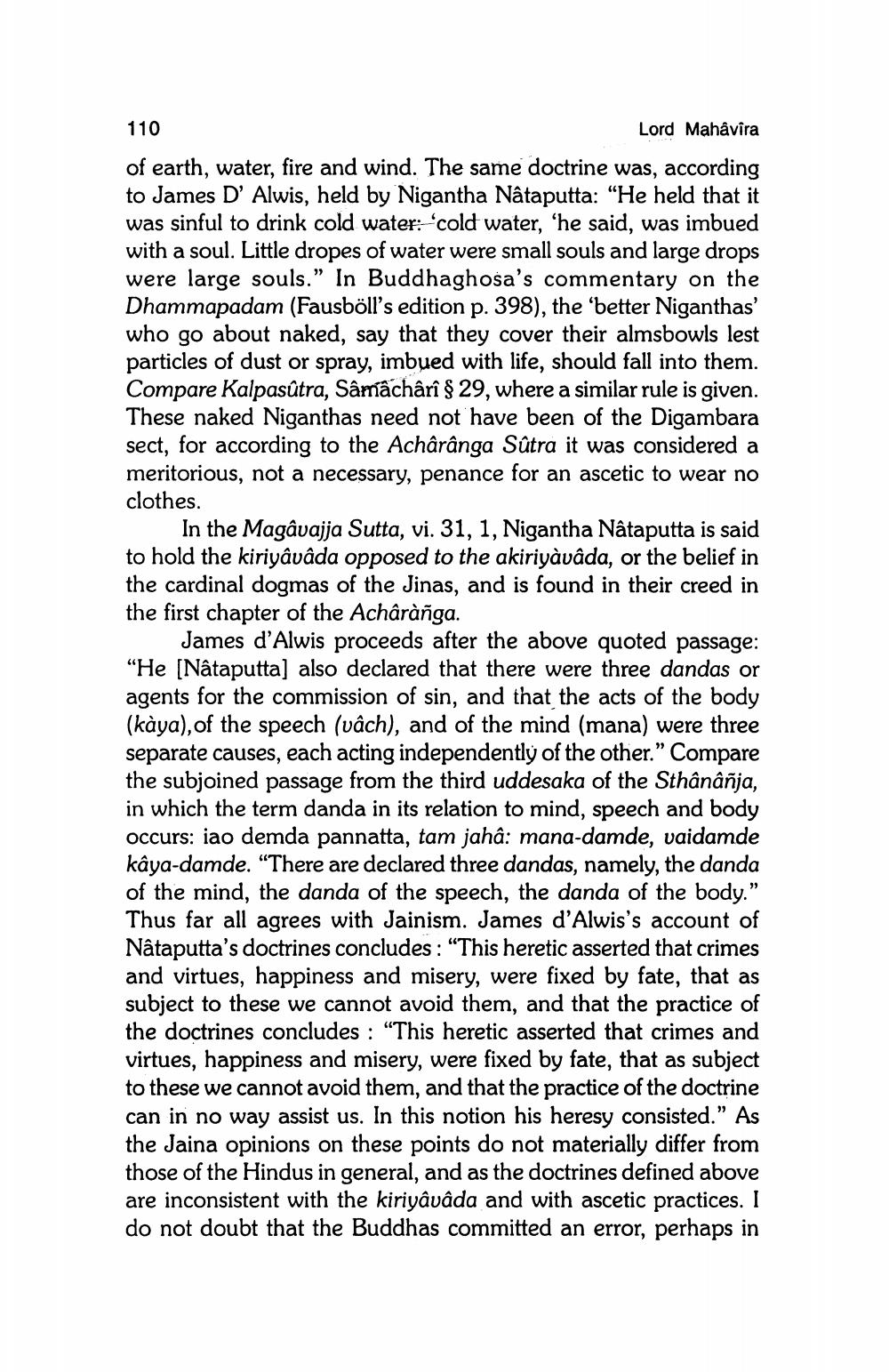________________
110
Lord Mahâvîra of earth, water, fire and wind. The same doctrine was, according to James D' Alwis, held by Nigantha Nâtaputta: "He held that it was sinful to drink cold water:-'cold water, he said, was imbued with a soul. Little dropes of water were small souls and large drops were large souls.” In Buddhaghosa's commentary on the Dhammapadam (Fausböll's edition p. 398), the better Niganthas' who go about naked, say that they cover their almsbowls lest particles of dust or spray, imbued with life, should fall into them. Compare Kalpasútra, Sâmâchârî $ 29, where a similar rule is given. These naked Niganthas need not have been of the Digambara sect, for according to the Achârânga Sûtra it was considered a meritorious, not a necessary, penance for an ascetic to wear no clothes.
In the Magávajja Sutta, vi. 31, 1, Nigantha Nâtaputta is said to hold the kiriyâvâda opposed to the akiriyàvâda, or the belief in the cardinal dogmas of the Jinas, and is found in their creed in the first chapter of the Achâràñga.
James d’Alwis proceeds after the above quoted passage: "He [Nâtaputta] also declared that there were three dandas or agents for the commission of sin, and that the acts of the body (kaya), of the speech (vâch), and of the mind (mana) were three separate causes, each acting independently of the other.” Compare the subjoined passage from the third uddesaka of the Sthânânja, in which the term danda in its relation to mind, speech and body occurs: iao demda pannatta, tam jahâ: mana-damde, vaidamde kâya-damde. “There are declared three dandas, namely, the danda of the mind, the danda of the speech, the danda of the body.” Thus far all agrees with Jainism. James d'Alwis's account of Nâtaputta's doctrines concludes: "This heretic asserted that crimes and virtues, happiness and misery, were fixed by fate, that as subject to these we cannot avoid them, and that the practice of the doctrines concludes : “This heretic asserted that crimes and virtues, happiness and misery, were fixed by fate, that as subject to these we cannot avoid them, and that the practice of the doctrine can in no way assist us. In this notion his heresy consisted.” As the Jaina opinions on these points do not materially differ from those of the Hindus in general, and as the doctrines defined above are inconsistent with the kiriyâuâda and with ascetic practices. I do not doubt that the Buddhas committed an error, perhaps in




